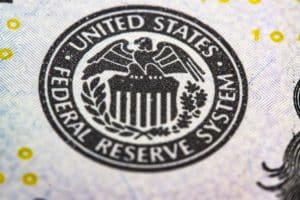The Fed Chairman Jerome Powell made his decision to raise interest rates by 0.25%: how did the crypto market react?
This move was widely expected and is another step in the Fed’s strategy to contain inflation.
The motivations of Jerome Powell and the Fed and the impact on crypto
Inflation is an economic phenomenon that occurs when the prices of goods and services rise steadily over time.
When inflation is high, people may have difficulty making purchases, and businesses may have trouble managing their costs. The Fed is in charge of controlling inflation in the United States, keeping the economy in a stable situation.
Raising interest rates is an important tool the Fed uses to control inflation.
When the Fed raises interest rates, it makes it more expensive to borrow money, which means that people and businesses can spend less. This in turn can help reduce inflation because it discourages demand for goods and services.
The Fed’s decision to raise interest rates was motivated in part by the performance of the US economy. The US economy has been expanding for several years, and unemployment is at its lowest level since 1969.
This has led to increased demand for goods and services and driven up prices. The Fed is trying to prevent inflation from becoming too high, which could hurt the economy in the long run.
However, there are also some risks associated with raising interest rates. For example, higher interest rates may make it more difficult for businesses to borrow money for investment and growth.
This could reduce long-term economic expansion. In addition, rising interest rates may make borrowing more expensive for people already struggling to meet their debts.
The Fed seems to be aware of these risks and has acted cautiously in raising interest rates.
The 0.25% increase is relatively modest, and the Fed has signaled that it may be appropriate to raise interest rates further in the future. This could depend on the performance of the US economy and inflation.
In addition, the Fed has also announced that it will gradually reduce its portfolio of assets, which it accumulated during its post-financial crisis policy of stimulating the economy.
This could have a similar effect to raising interest rates, as it would reduce the amount of money in circulation.
The Fed’s decision to raise interest rates seems to have been well received by financial markets. However, investors seem to have understood the need to contain inflation, and the Fed has signaled that it has a clear plan to deal with the situation.
However, there are also some concerns about the impact of rising interest rates on more developing countries and the global economy.
When the United States raises interest rates, it becomes more attractive for investors to move their money to the United States, which could lead to currency weakness in developing countries.
In addition, higher interest rates in the United States could increase the cost of debt for countries that have borrowed in dollars, making it more difficult for them to repay their debt.
For now, as expected, the crypto market has reacted with a sudden drop in prices. It remains to be seen whether this descent turns out to be a physiological correction or the last moment of the bear market.
The statements of Chairman Jerome Powell
The decision was made despite the recent tensions in the banking system, which, according to Fed Chairman Jerome Powell, do not put depositors’ savings at risk.
Powell assured that the US banking system is solid, resilient and well-capitalized and that the central bank has the tools to protect deposits and maintain the safety of the banking system.
However, recent difficulties that have emerged in some small banks prompted the Fed to speculate on a pause in the aggressive campaign of interest rate hikes.
But, after a “strong consensus,” a mini-hike was agreed upon to demonstrate a commitment to fight inflation that remains “too high.”
Powell emphasized that the road back to 2% inflation is still long and bumpy and that further hikes in the cost of money may be necessary.
The Fed estimates to arrive at the end of the year with rates averaging 5.1%, but could raise them even higher if necessary. At the end of 2024, the cost of money is expected to be around 4.3%.
The Fed’s decision disappointed Wall Street, which had hoped for an end to the bullish cycle.
Powell and the Banking crisis
Nonetheless, Powell explained that the banking crisis has a disinflationary effect that has yet to be deciphered and could slow down the economy, which many analysts say is either started or already in recession.
“The road to a soft landing still exists, let’s try to find it”
Powell said.
The Fed’s decision sparked a strong reaction in the stock market. After the announcement, the stock markets, which had welcomed the mini-tightening, experienced a sharp reversal, with hopes of an end to the bullish cycle fading.
However, Powell believes the banking crisis has a disinflationary effect that could slow the economy, but could also help the Fed achieve its goal of containing inflation.
Despite the focus on the banking crisis, the Fed also revised its estimates for GDP in 2023 and 2024 slightly downward. The unemployment rate, on the other hand, is expected to be 4.5% this year. In general, the Fed believes that the road to a soft landing for the economy still exists and needs to be found.
The banking crisis has brought to light some shortcomings in the supervision of the US banking system. Silicon Valley Bank, with more than $100 billion in assets, was under Fed supervision but suffered a failure that raised some criticism of the central bank’s ability to prevent such events.
Powell opened to the possibility of an outside investigation into the Fed’s supervision of SVB and acknowledged the need for a tightening of regulations and supervision of banks.


